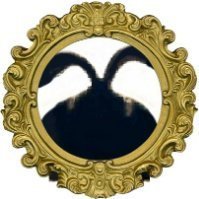Deepak Chopra's Buddha Bio
-
Recently Browsing 0 members
- No registered users viewing this page.
-
Topics
-
-
Popular Contributors
-
-
Latest posts...
-
273
Crime Drunk Brit Attacks Bar Worker, Hurt by American Customer
Nah, that’s wrong! The lady walked away, so the fight was over. (And even if it hadn’t been, the American could’ve just restrained the Brit—he looked strong enough to do that.) But instead, the American guy started a new fight and threw the Brit onto the road. He escalated the situation instead of de-escalating it! If anyone knows this Brit, tell him to file a complaint at the police station and let the authorities press the American to cover the hospital costs and compensate for the lost vacation days. -
129
An Operating Manual for Understanding the Thai Mind
Post with profanity removed -
13
Crime Bangladeshi Man Assaulted & Robbed by Gang of Women in Pattaya
Possibly because he's working in Singapore or Malaysia - lots of Bangladeshi construction workers. Plus as said above, good luck changing Bangladeshi Taka at Super Rich. -
5
IDFs committing suicide due to committing War Crimes.
Another post removed from the same member, topic //closed// -
184
US banks refuse Trump's business
The purpose of my post was to point out that LGBTQ+ hater Trump, doesn't care about if it scores him points or money in his pocket, but you omitted that in your reply. Where they will get the money from is not my concern, you will also be aware that the whole Trump administration is build on lies, more lies and damned lies. There have been more companies that have committed to investing hundreds of billions in the US, only to avoid the silly tariffs. And in my opinion, that are all questionable claims. -
14
UK 474 Arrested at London Protest Against Palestine Action Ban
The death of a country in painful slow motion 🤔
-
-
Popular in The Pub











Recommended Posts
Create an account or sign in to comment
You need to be a member in order to leave a comment
Create an account
Sign up for a new account in our community. It's easy!
Register a new accountSign in
Already have an account? Sign in here.
Sign In Now